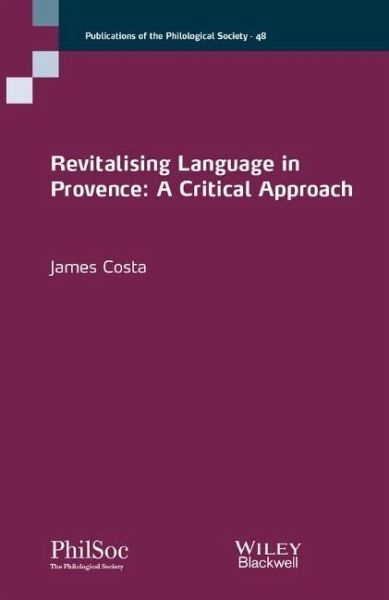
Revitalising Language in Provence
A Critical Approach
Versandkostenfrei!
Versandfertig in über 4 Wochen
38,99 €
inkl. MwSt.

PAYBACK Punkte
19 °P sammeln!
Revitalising Language in Provence: A Critical Approach questions the concept of language revitalization and challenges the field's main tenets through a detailed analysis Southern France's Provençal movement, one of Europe's longest standing language revitalisation projects._ Presents a wealth of new research data relating to revitalising language movement_ Offers an innovative new way of problematizing language revitalisation_ Questions the very concept of language revitalisation and challenges the field's main tenets_ Reveals what language revitalisation movements really stand for, what the...
Revitalising Language in Provence: A Critical Approach questions the concept of language revitalization and challenges the field's main tenets through a detailed analysis Southern France's Provençal movement, one of Europe's longest standing language revitalisation projects.
_ Presents a wealth of new research data relating to revitalising language movement
_ Offers an innovative new way of problematizing language revitalisation
_ Questions the very concept of language revitalisation and challenges the field's main tenets
_ Reveals what language revitalisation movements really stand for, what they use language for, and who the people spearheading these movements are
_ Presents a wealth of new research data relating to revitalising language movement
_ Offers an innovative new way of problematizing language revitalisation
_ Questions the very concept of language revitalisation and challenges the field's main tenets
_ Reveals what language revitalisation movements really stand for, what they use language for, and who the people spearheading these movements are


